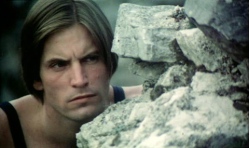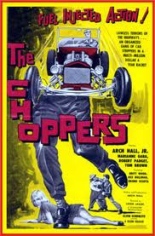
 It may not be as priceless as Eegah!, but The Choppers is another unintentionally hilarious Arch Hall Jr. vehicle worthy of your time and derision.
It may not be as priceless as Eegah!, but The Choppers is another unintentionally hilarious Arch Hall Jr. vehicle worthy of your time and derision.
The whiny Hall stars as “Cruiser,” a teenage punk with sculpted hair and a chassis fetish. He heads a JD gang known as “The Choppers,” whose other members are Torch, Snooper and Flip; all of them talk such thick lingo they should be carrying green cards. When they’re not hanging out at the Chick-A-Dilly, they’re hunched in a poultry truck, waiting for someone to run out of gas along a short stretch of highway, and then move in to strip — or “chop,” as the kids say — the car clean as the driver leaves to fetch fuel. (Apparently, this is an everyday occurrence.)
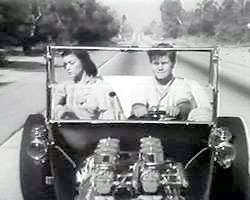 The Choppers then sell the parts to a fat salvage-yard owner named Moose, whose assistant is a senile fool named Cowboy, who often shoots toward the camera with his finger. If you hadn’t noticed by now, this is the kind of movie where no characters have real names.
The Choppers then sell the parts to a fat salvage-yard owner named Moose, whose assistant is a senile fool named Cowboy, who often shoots toward the camera with his finger. If you hadn’t noticed by now, this is the kind of movie where no characters have real names.
The cops are on their trail, however, so for the big stakeout, they invite a local radio reporter to cover it as a live broadcast! It leads to a chase, a game of chicken and ultimately a junkyard shootout that looks choreographed by 8-year-olds.
If you think this story doesn’t allow time for Hall to bust out one of his ridiculous, self-penned songs on the guitar, you’re wrong! Just before the big climax, lil’ Arch takes some time out to sing “Monkey in My Hatband,” the first five lines of which go, “Come, baby / Come on, baby / Come on, baby / Come on, baby / Come on, baby.”
Yep, he wrote that all by his lonesome! —Rod Lott

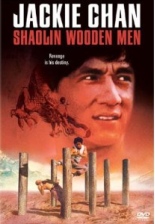
 Certainly not the best of Jackie Chan’s string of Lo Wei films early in his career,
Certainly not the best of Jackie Chan’s string of Lo Wei films early in his career, 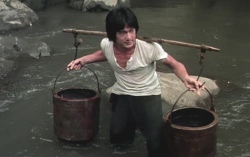
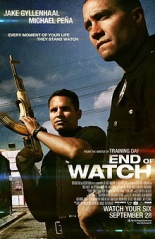
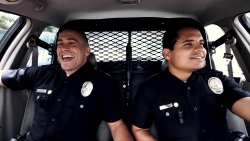
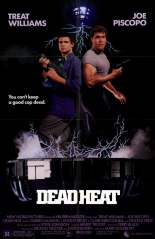
 Not to date myself, but I remember a time when Joe Piscopo told punch lines instead of being one. He was great on
Not to date myself, but I remember a time when Joe Piscopo told punch lines instead of being one. He was great on 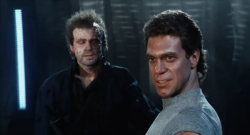

 No sooner has thieving murderer Joe Breezi (Andy Warhol regular Joe Dallesandro) escaped from prison to sweet freedom than he kills a couple of farmers, stabbing one with the elderly guy’s own pitchfork. At least he has good reason: Joe needs their car to drive to the two-room countryside cottage in which he buried 300 million liras five years prior, underneath the fireplace.
No sooner has thieving murderer Joe Breezi (Andy Warhol regular Joe Dallesandro) escaped from prison to sweet freedom than he kills a couple of farmers, stabbing one with the elderly guy’s own pitchfork. At least he has good reason: Joe needs their car to drive to the two-room countryside cottage in which he buried 300 million liras five years prior, underneath the fireplace.